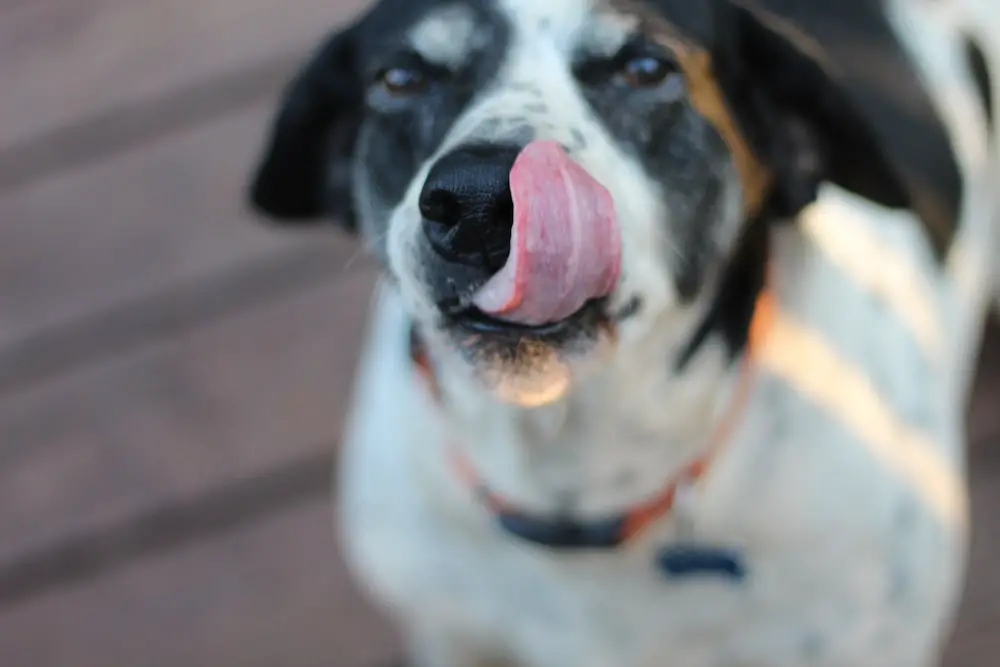Can Dogs Drink Strawberry Milk?
Has your dog been begging you for a taste of your strawberry milk? And can you give them some? The short answer is no. You should never give your dog any milk, and flavored milk is certainly no exception.
Why Dogs Can’t Drink Strawberry Milk
Lots Of Dogs Are Lactose Intolerance
The first problem with strawberry milk is that dogs’ bodies aren’t designed to digest milk after they’ve been weaned, as puppies.
As many dogs are lactose intolerant to some degree, products like milk prevent them from properly digesting dairy products. If a dog drank some milk, it could result from anything from severe to mild gastrointestinal discomfort–loose stools, diarrhea, vomiting and stomach pain.
Your Dog Could Be Allergic
Dogs can suffer from many different food allergies and a dog could get an allergic reaction from something in the ingredients. It’s possible for a dog to experience an allergic reaction to taking milk products such as strawberry milk.
Too Much Sugar
Another reason why your dog shouldn’t be given strawberry milk is because it’s loaded with sugar, and feeding your dog sugary foods can lead to weight gain and obesity, which leads to other health problems. Even if the milkshake wrapper says that it’s sugarless, you always need to be careful to read the label to make sure that no xylitol is in the product, as this sweetener is extremely toxic to dogs.
Toxic Flavors
The final problem with strawberry milk is that some flavors added to the milkshake could actually be toxic for a dog.
What Should I Do If My Dog Drinks Some Milk?
Most experts agree that dogs should never drink milk. The main reason being, they’re lactose intolerant, therefore dogs can’t process milk and most dairy products. Even ice cream can be troublesome for dogs to digest, so always play it safe and only give your dog products that are formulated, especially for canines. If your dog accidentally gets their hands on some milk, you shouldn’t worry too much. Just follow these steps.
Step 1
Remove any milkshake that your dog has access to. For example, if a glass spills on the floor, clean it up before your dog can drink any more — while it could upset their stomach, the only thing that your dog understands is that it tastes great.
Step 2
Try giving your dog plenty of fresh, cool and clean water to drink. Depending on their level of intolerance and how much milk they could have drunk, they may experience diarrhea or vomiting, which will make them dehydrate.
Step 3
Take your dog out for more frequent bathroom breaks.
Step 4
If your dog seems itchy, give them a moisturizing oatmeal bath. Some dogs could experience itch as an allergic reaction to milk and dairy products. A soothing bath may help relieve the itch.
Why Puppies Can’t Have Strawberry Milk
For the first few weeks of a puppy’s life, not only is it important not to give it any kind of milkshake, they shouldn’t actually be consuming anything at all other than their mother’s milk. The mother fulfils all the nutritional and hydration needs of young puppies, and that’s all they should get. If for some reason, the mother can’t rear the puppies by herself, you can take over the feeding process with puppy formula with a commercial milk replacer.
Dairy
Even when a puppy has passed the first crucial weeks of nursing, milkshakes are still very bad. As the main ingredient of a normal milkshake is cow’s milk, this can trigger diarrhea and severe abdominal pain for a puppy or dog, as they can’t digest lactose. So, you will only be making life very hard for a dog or puppy if you give them any type of dairy product. It’s important to know that milkshakes are full of sugar, milkshakes do nothing to satisfy the nutritional requirements of dogs.
Other Products
Milkshakes aren’t the only human food that causes a nuisance to small puppies. You should never allow a puppy to eat anything other than food that’s labelled as specifically being for young pups. Puppies have different nutritional needs compared to adult dogs, and will only thrive on foods formulated for fast-growing puppies rather than regular adult dog food for the first 6-12 months of their lives.
Water
The only drink that’s suitable for dogs is clean, fresh, cool water. Nothing else. Water is vital for proper canine nourishment. Always make sure that your dog has access to clean water.
Conclusion
As a dog owner, you’re probably very aware of how difficult it is to ignore your dog’s huge, pleading eyes. But it’s important to not give in, for your dog’s sake.
